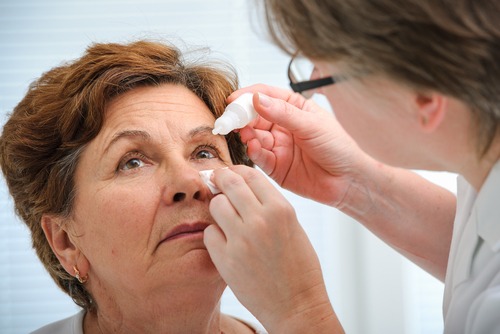Senior Eye Health: 60 Years of Age and Older
While age is just a number, and being age 60 or older can still mean you live with healthy eyes and good vision, it is during this time that your eyes are the most vulnerable to age-related vision conditions and eye diseases.
Being in your 60s and beyond, it’s extremely important to be aware of the warning signs of eye conditions and diseases. When you know what to expect or look for, you can get help or treatment faster and offset more serious vision issues – like partial loss or blindness.
Above all, it’s important to remember that any vision issue that you currently live with or develops as you age does not have to negatively affect your desired lifestyle. With the right support and care, you can enjoy comfortable, clear vision for years to come.
View our comprehensive healthy eye exam service and schedule your annual eye exam today, or learn about our effective treatment for serious eye diseases:
Common Eye Conditions Seen in Seniors
Eye conditions that individuals aged 60 and older commonly contend with include:
- AMD (Age-Related Macular Degeneration)
- Cataract
- Central Retinal Vein Occlusion
- Diabetes Eye Disease
- Diabetic Macular Edema
- Diabetic Retinopathy
- Dry Eye Syndrome
- Floaters
- Glaucoma
- Refractive Errors, like myopia (nearsightedness), hyperopia (farsightedness) and astigmatism (imperfection in the eye’s curvature)
- Retinal tears and Detachment
Because many eye diseases have no early symptoms, and may develop painlessly, you may not notice the onset of various eye conditions until it is already advanced. That’s why a comprehensive annual eye exam is so imperative as you reach your senior years.
Learn about our effective detection of and treatment for eye diseases or schedule your healthy eye exam today:

How to Maintain Good Eyesight in Your 60s and Beyond
Maintaining good eyesight as you age can be as simple as fostering healthy lifestyle choices and having regular eye exams to ensure your vision is adequately supported and to detect the early onset of an eye disease.
Discover foods for eye health and eye health tips to help you sustain clear, comfortable eyesight:
How Often Should Seniors Schedule an Eye Exam?
For individuals age 60 and older, a comprehensive eye exam is recommended annually. If your optometrist needs to monitor your vision more frequently, more eye exams will be advised.
Aging is Normal. Deteriorating Vision Doesn’t Have to Be. Let iCare Help You Achieve Optimal Vision at Any Age
Protect your vision by detecting issues early with regular eye examinations. Let us help you take the best care of your eyes today and every day.
Learn about our eye exams and fittings for eyeglasses, or our contact lens exams and fittings:
